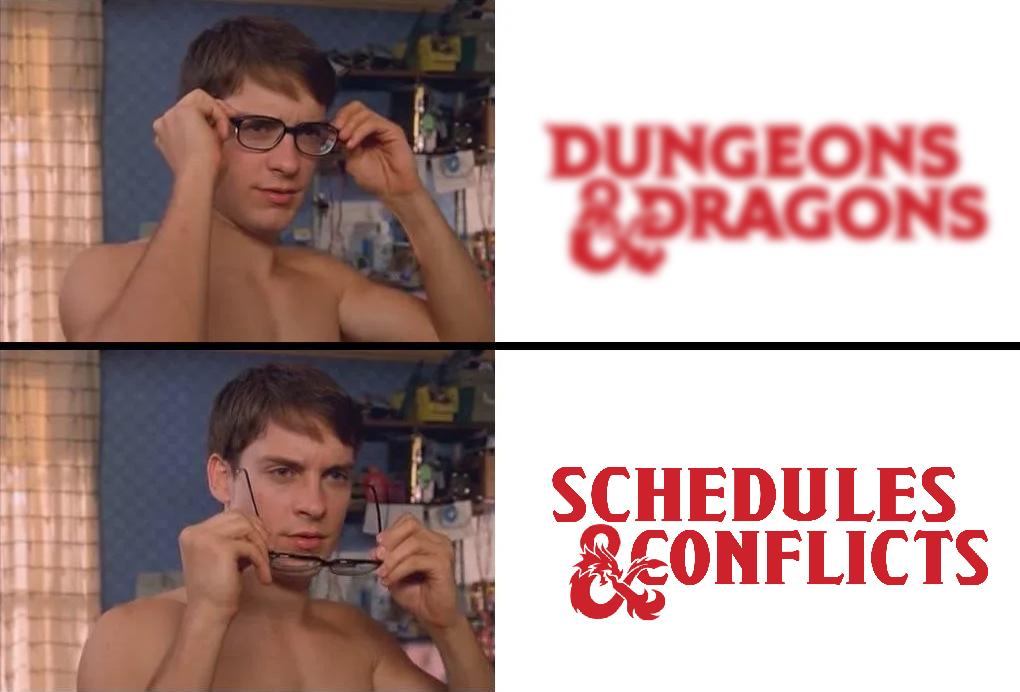this post was submitted on 04 Dec 2023
527 points (98.9% liked)
RPGMemes
13643 readers
959 users here now
Humor, jokes, memes about TTRPGs
founded 2 years ago
MODERATORS
you are viewing a single comment's thread
view the rest of the comments
view the rest of the comments

We have a house rule about this: The real world of course has priority, so if something happens that is out of your control, it is not the end of the world if a session gets cancelled.... but if it happens regularily or without a good excuse, then the character gets temporarily removed from the party with a matching in-game excuse so that the people who DID show up can play in peace.
So the party just defeated a big enemy and the next session they wanted to plan their next steps, but the player of the warrior didn't show up for the third time...? His character is unconscious now while the others talk. Hit to the head during the fight, 5 hours or so knocked out, and the player and character alike can catch up with the rest the next time the player is present. Or maybe the guy had to escort injured villagers to the next healer and heads back to the party a few days later after completing his own little mission "offscreen". Or he ate something bad and spent a week locked up in the outhouse, whatever. There is always some way to send the missing guy's character away for a while so the rest of the party doesn't go empty-handed for the umptheenth time in a row.